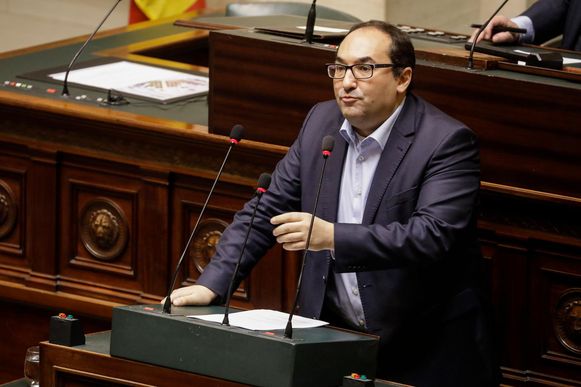Federal negotiators are "not far" from reaching a coalition deal which would finally give Belgium a new federal government, an MP said, more than a year after federal elections last May.
"Talks are still taking place in a delicate and difficult context but there is sufficient goodwill at the negotiation table," Ahmed Laaouej, leader of the Francophone Parti Socialist in Parliament, said in a radio interview with RTL.
Laaouej's comments come days before King Philippe's latest appointee to oversee the formation of a new federal government, the Flemish liberal (Open Vld)'s Egbert Lachaert, is set to deliver a report on the state of the negotiations to the king.
Related News
Lachaert's report, due on Friday, also comes as party leaders come under increased pressure to reach a deal, with the current special powers government led by the MR Francophone liberal's Sophie Wilmès set to expire on 17 September, and with parties also pushing new elections as the only way out of the logjam.
If no deal has been reached by that date, Wilmès' government will have to ask parliament to renew confidence in her government, appointed to fill a leadership void created by the failing negotiations in order to face the coronavirus pandemic.
After prospects to settle on a novel so-called Arizona coalition of liberals, Christian-democratic and Flemish socialists and right-wing nationalists dissolved, hopes have reemerged for the once-buried Vivaldi, or rainbow coalition, which would bring together the Francophone and Flemish liberals, socialists and greens and potentially the Flemish Christian-democrats CD&V.
In his statements, Lachaert said that prospects were looking up for the Vivaldi coalition, which was previously scrapped because it excluded the Flemish nationalist N-VA, the largest party in Flanders.
In the interview, Laaouej refused to say whether, in the absence of a deal, the PS would renew its support for the Wilmès government, saying now was not the time to jump the gun and that it seemed that negotiators were close to clinching a deal.
"We should not rush things, we should see how the situation evolves," he said. "I think we are not far from finding a solution but, to get there, goodwill and cold blood will be necessary."
Asked about a threat by the N-VA to turn its back on other parties and form an alliance with the Flemish far-right party Vlaams Belang, which grew massively in the May elections, Laaouej hit out at N-VA bigwig Theo Francken, accusing him of paving the way for the VB's success.
"It is because of people like him that the Vlaams Belang has become the most popular party in Flanders," Laaouej said, adding that the far-right party had been "helium-inflated" by his "xenophobic" discourses.
"He regularly and clearly shows his disdain towards Brussels and towards Walloon, so, today, Francken is one of the main people responsible for the situation in Flanders."
In the aftermath of the 26 May elections, Belgium's political landscape emerged as divided as ever, with Flemish voters handing massive victories to the far-right and Flemish nationals while Brussels voted for the greens and Wallonia for the socialists.
Gabriela Galindo
The Brussels Times

